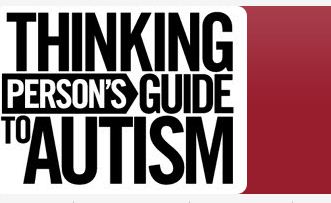Worth Repeating: Why Autistic Students Need Autistic Role Models
Editor’s Note: Our republication of the term “autistic” rather than “person with autism” is a deliberate choice, as that is the terminology used by the people in this interview. The authors have specifically requested we leave their vocabulary ‘as is’.
[Source: Thinking Person’s Guide to Autism]

How many autistic kids are truly supported in school? How can we help students avoid failure? And how do we determine what really are best practices for autism and learning? We talked with psychologist Dr. Cynthia Arnold of the Portland area’s New Leaves Clinic, Autistic self-advocate Karla Fisher, and Tasia, the parent of 14-year-old Nick, about the specific strategies they used to help Nick transition from educational crisis to classroom success — including the importance of getting autistic perspectives on environments and supports for autistic students, and for those students to have autistic role models. (Nick gave permission for this interview to be published, but chose not to participate.)
—-
Tasia: Nick is 14, and just finished the 8th grade. He loves science of all kinds. He also loves nature in all of its forms, especially reptiles — the other day he told his mother he wants to be a herpetologist when he grows up (the first time he’s ever talked about what he wants to be when he grows up). His latest obsession is riverside fishing for bass and trout. He even taught himself how to gut and cook a fish.
We were struggling with his behavior. He was a super-anxious kid, and was getting in trouble at school nearly every day, plus constant meltdowns at home. We were at the end of our rope: we didn’t know how to parent this kid, we did not know what else to do for him.
Read the Rest of this Article on Thinking Person’s Guide to Autism
PediaStaff is Hiring!
All JobsPediaStaff hires pediatric and school-based professionals nationwide for contract assignments of 2 to 12 months. We also help clinics, hospitals, schools, and home health agencies to find and hire these professionals directly. We work with Speech-Language Pathologists, Occupational and Physical Therapists, School Psychologists, and others in pediatric therapy and education.
